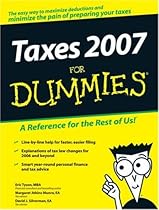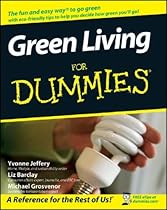Even when told that getting rid of the mortgage interest deduction would help ease the federal budget deficit, 65 percent of voters opposed any proposal to abolish the tax provision, with 69 percent of Republicans, 69 percent of Independents and 59 percent of Democrats opposing eliminating the deduction even it would help the federal budget deficit.
by Broderick Perkins
© 2011 DeadlineNews.Com
![]()
![]()
Unauthorized use of this story is a copyright violation -- a federal crime

Deadline Newsroom - Housing-related tax breaks are as American as apple pie and politicians who want to cut the tax perks that come with housing may want to consider another line of work.
Nearly three out of four voters -- 73 percent of both owners and renters -- believe Uncle Sam ought to provide tax benefits to promote homeownership.
The sentiment cut across party lines with 79 percent of Democrats, 71 percent of Republicans and 68 percent of Independents supporting tax perks that come with homeownership.
Even when told that getting rid of the mortgage interest deduction would help ease the federal budget deficit, 65 percent of voters opposed any proposal to abolish the tax provision, with 69 percent of Republicans, 69 percent of Independents and 59 percent of Democrats opposing eliminating the deduction even it would help the federal budget deficit.
Legislators who vote to eliminate the mortgage interest deduction are more likely to be voted out of office than those who support the deduction, according to a recent National Association of Home Builders (NAHB) poll by Lake Research Partners and Public Opinion Strategies.
Fifty-eight percent of voters residing in House GOP freshmen districts, 58 percent in the House swing districts, 56 percent in Senate toss-up race districts and 54 percent of voters living in presidential swing states said that they would be less likely to vote for a candidate for Congress who proposed to eliminate the mortgage interest deduction.
"Despite the current housing downturn, Americans still see homeownership as a core value and a key building block of being in the middle class and creating strong jobs in their communities," said Celinda Lake, president of Lake Research Partners.
"The bottom line: The bipartisan consensus outside the Beltway is that owning a home remains an essential part of the American Dream and voters would strongly oppose any efforts by lawmakers to increase barriers to homeownership," Lake said.
Pollsters surveyed 2,000 likely 2012 voters from May 3 through May 9 to assess the public's attitude following he Great Recession and efforts to scuttle the mortgage interest deduction and create "Qualified Residential Mortgage" standards that could price even excellent-credit consumers out of the housing market.
The NAHB also found:
• Seventy-six percent of respondents in key U. S. Senate races, 75 percent of voters in swing U.S. House of Representative districts, 75 percent among presidential swing states and 71 percent of voters residing in GOP House freshmen districts support federal government tax incentives to encourage homeownership.
• Seventy-one percent of voters oppose proposals to eliminate the mortgage interest deduction, and 63 percent oppose efforts to reduce it. A majority are also against eliminating the deduction for interest paid on home equity loans, ending the deduction for interest paid on a second home, limiting the deduction for those earning more than $250,000 per year or capping the deduction for home owners with mortgages over $500,000.
• By a more than two-to-one margin (57 percent to 26 percent), voters said they would be less likely to vote for a candidate who supports eliminating the mortgage interest deduction, including 63 percent of Republicans, 56 percent of Independents, 55 percent of Democrats and 61 percent of Tea Party supporters saying they would be less likely to support a candidate who favored killing the deduction.
• Among voters who are aware of proposals under consideration by Washington policymakers to raise the down payment requirements for a home loan, 92 percent believe it will make it more difficult to buy a home.
• Six federal agencies are proposing a national standard to require a minimum 20 percent down payment, which would be opposed by households most likely to be affected – mortgage holders and renters ages 18 to 54. Among voters in these age groups, 59 percent of renters and 58 percent of those holding a mortgage oppose adding that obstacle to buying a home.
"The polling found that there is a significant disconnect between Washington policy makers and the nation's electorate when it comes to the mortgage interest deduction, the importance of homeownership and the need to keep housing a national priority," said Neil Newhouse, a partner and co-founder of Public Opinion Strategies.
• Click on the keywords below for more stories on this subject.
© 2010 DeadlineNews.Com
Advertise on DeadlineNews.Com | Shop DeadlineNews.Com
Get "News that really hits home!" for your Web site or blog from the DeadlineNewsGroup.Com.
You are reading a sample of "News that really hits home!" now available from several beats and published in a growing number of locations.
Broderick Perkins, an award-winning consumer journalist, parlayed 30 years of old-school journalism into a digital real estate news service, the San Jose, CA-based DeadlineNews Group, including DeadlineNews.Com, a real estate news and consulting service and Web site, and the Deadline Newsroom, DeadlineNews.Com's news back shop.
Under the DeadlineNews Group umbrella:
Perkins was the first Examiner to cover three beats for the Examiner.com news service:
• National Real Estate Examiner
• National Consumer News Examiner
• National Offbeat News Examiner
Other DeadlineNews Group Feeds are available from DeadlineNews.Com.
DeadlineNews.Com's Editorial Content Is Intellectual Property • Unauthorized Use Is A Federal Crime
Read more!
















